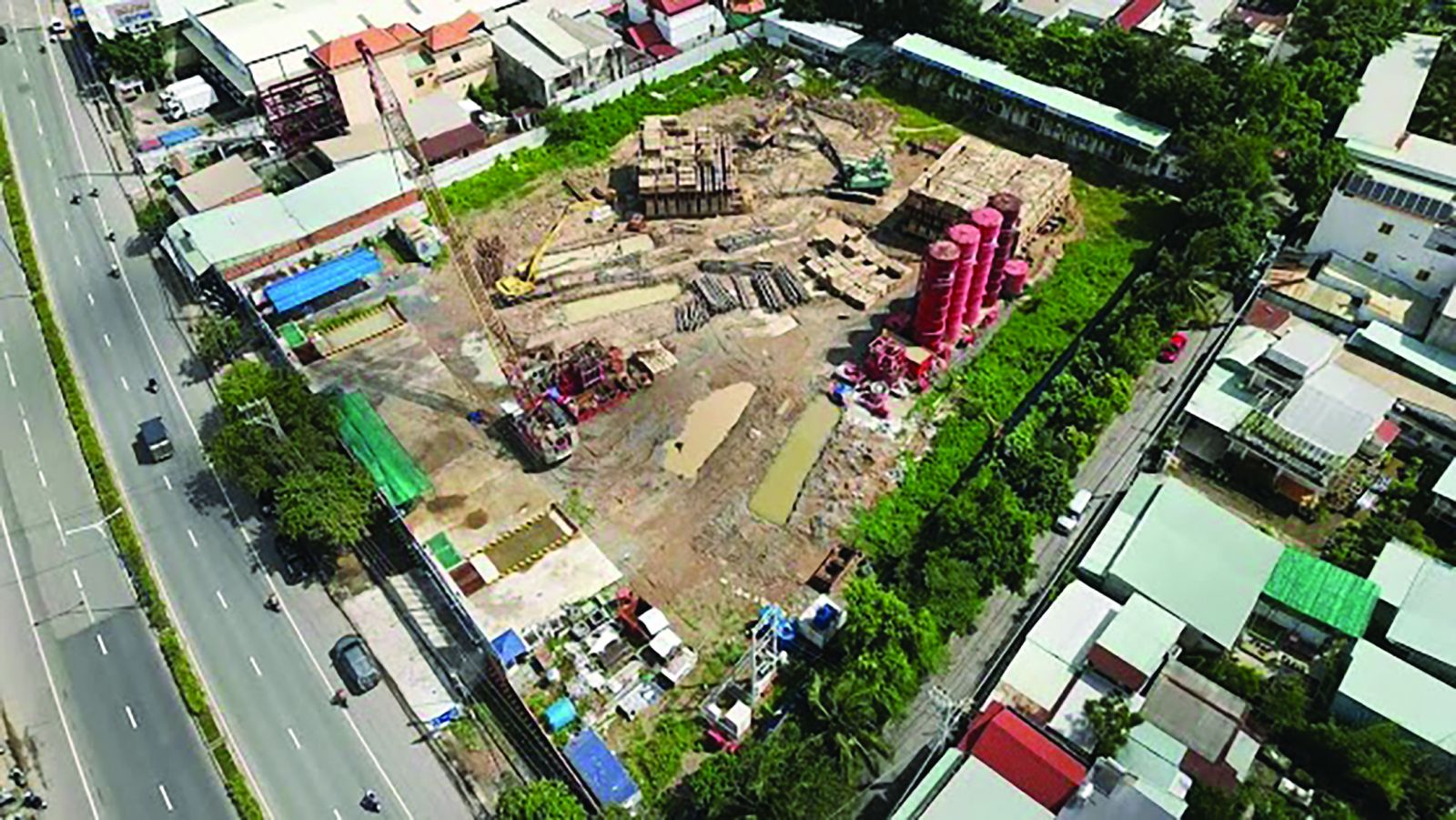Real estate market newcomers: cause for celebration or concern?
Despite the market's multiple obstacles, the trend of investing in real estate is gaining traction among businesses across industries.
Although the Vietnamese real estate market is plagued with obstacles, it is also seen as a "golden" opportunity for financially strong businesses to engage.

Leaders of Hoa Phat Company (second from the left, front row) receiving a memorandum of understanding on investment cooperation in Phu Yen Province.
The Wave of Diversification
The Hoa Sen Group has approved the establishment of Hoa Sen Saigon Joint Stock Company with a charter capital of VND 100 billion, with the goal of operating in the real estate industry and holding 40% of the capital. This initiative is viewed as a start toward expanding into real estate, with a concentration on office buildings, shopping malls, and residential developments.
Similarly, Hoa Phat Group has announced the signing of a memorandum of understanding to invest in three projects in the South Phu Yen Economic Zone, totaling more than VND 120,000 billion. After years of hesitation, this steel company has decided to reinvest in the real estate market starting of January 2023. By the end of 2022, Hoa Phat has won bids for two urban projects in Hung Yen and Phu Tho totaling VND 10,000 billion.
Furthermore, major construction giants such as Ricons, Newtecons, Fecon, Coteccons, and others have invested directly in real estate projects. For example, Coteccons is investing in The Emerald 68 project in Binh Duong province in partnership with Le Phong Investment and Development Company (Le Phong Group), marking its first foray into development.
Many feel that branching into real estate is becoming a viable alternative for building contractors as their primary business areas decrease. Since the Covid-19 epidemic, several construction enterprises have struggled because to a fall in the local and foreign real estate markets. Furthermore, the "price storm" of materials since 2022 has tested the building sector's resiliency.
Mr. Le Viet Hai, Chairman of Hoa Binh Construction Group (HBC), said that the construction sector is in a tough period, with severe pricing rivalry, even to the point of operating below cost.
Contractors have been obliged to transfer their attention abroad or seek other markets, including real estate, as a result of these constraints. However, the fact is that competition in the real estate business is tough, regardless of the financial might of behemoths like Coteccons or Hoa Binh.
A Cause for Celebration?
In the current challenging environment, the trend of non-industry businesses expanding into real estate is seen as a positive signal.

Coteccons invested in The Emerald 68 project in Binh Duong Province.
Experts feel that the current market has chances for businesses, but new entrants must examine their worth in the real estate investment chain to calculate risks and projected returns.
According to Mr. Phan Xuan Can, Chairman of Soho Vietnam (a firm that specializes in advising on project purchase transactions), the participation of non-industry enterprises would expand the real estate market in terms of member count and product diversity. However, when there is attractiveness, there is typically severe competition, and any organization that lacks competence will be destroyed.
Mr. Can pointed out that in the near run, news of a real estate expansion generally raises expectations of sales and profit growth for firms. To ensure that these expectations are well-founded, investors must carefully analyze the company's advantages in this industry as well as its unique investment strategy.
Experts warn that the massive migration of "outsiders" into the real estate business may result in a supply surplus. This tendency not only affects the profitability of new entrants, but it also raises the possibility of market bubbles.
Diversifying into new industries necessitates particular company plans and long-term strategies for adapting and thriving in the face of market obstacles. Simultaneously, tight government and regulatory oversight is required to prevent a real estate bubble.








